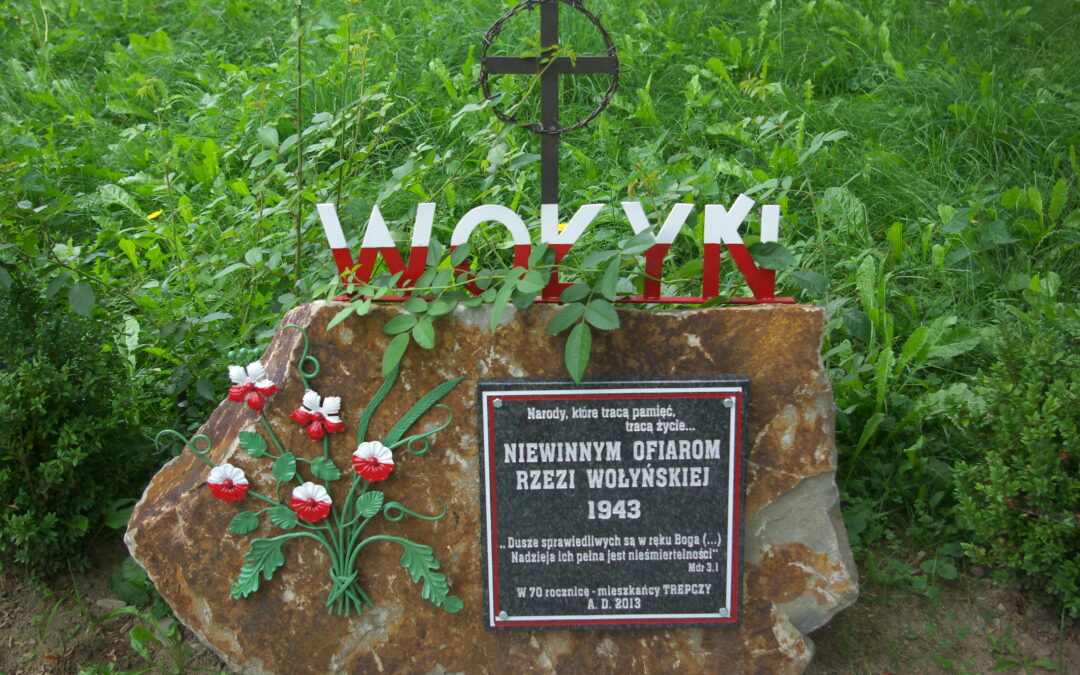Poland and Ukraine have again clashed over the Volhynia massacre, which saw up to 100,000 ethnic Poles murdered by Ukrainian nationalists during World War Two. The issue has long caused tension between two countries that have otherwise become the closest of allies since Russia’s invasion.
The latest dispute began with the spokesman for Poland’s foreign ministry suggesting that Ukraine’s president, Volodymyr Zelensky, should apologise for the massacre. That prompted an angry response on Twitter from the Ukrainian ambassador, who later deleted his tweets.
Rzecznik MSZ: prezydent Zełenski powinien przeprosić za Wołyń [WYWIAD] https://t.co/XOllhmTcrO
— Onet Wiadomości (@OnetWiadomosci) May 19, 2023
In an interview with news website Onet published on Friday, Polish foreign ministry spokesman Łukasz Jasina spoke about the upcoming 80th anniversary, in July, of the Volhynia massacre.
He said that “understanding [of the massacres] is still too weak” among Ukrainians, but “I am optimistic this anniversary will change something”. While Poles regard the massacres as a genocide – and parliament has declared it to be one – Ukraine rejects that description.
Jasina acknowledged that “President Zelensky has many other things on his mind at the moment”. But the massacre is “a matter so important that it must be dealt with” at the presidential level because it “blocks a lot of joint initiatives” between Poland and Ukraine, he added.
Poland’s prime minister says he has received personal assurances from @ZelenskyyUa that Ukraine will permit the exhumation of victims of the Volhynia massacres, in which Ukrainian nationalists killed tens of thousands of ethnic Poles during WWII https://t.co/gJI3YntsHg
— Notes from Poland 🇵🇱 (@notesfrompoland) March 14, 2023
Asked whether Zelensky should apologise, Jasina agreed that he “should take more responsibility”. Asked what form such an apology could take, he suggested: “I am sorry and ask for forgiveness.”
That suggestion met with an angry response from Ukraine’s ambassador to Warsaw, Vasyl Zvarych, who on Saturday issued a statement on Twitter that was later deleted.
“Any attempt to impose on the President of Ukraine or on Ukraine what we must about our common past [sic] is unacceptable and unfortunate,” he wrote in Polish. “We remember history and call for respect and balance in statements, especially in the difficult reality of genocidal Russian aggression.”
Czy możliwy będzie komentarz do👇? pic.twitter.com/M2WQmErLF7
— Żołnierz 6 dywizji😵💫 (@D45754420) May 20, 2023
After deleting those remarks, Zvarych tweeted this morning to say that he found Jasina’s “form of communication inappropriate”, adding: “We are open to dialogue, cooperation on history, we understand its importance, we honor the memory of the victims. Stronger together.”
Polish deputy foreign minister Piotr Wawrzyk also sought to calm tensions, telling news website wPolityce that “now is not the time to look for problems in relations, but rather to focus on supporting Ukraine…Creating problems is not good for anyone apart from Russia”.
Mój wczorajszy wpis był reakcją na słowa Rzecznika MSZ w Onet, który wprost wskazał, co musi zrobić prezydent 🇺🇦. Uważam taką formę komunikacji za niewłaściwą. Jesteśmy otwarci na dialog, współpracę ws historii, rozumiemy jej znaczenie, czcimy pamięć ofiar. Razem silniejsi 🇺🇦🇵🇱
— Vasyl Zvarych (@Vasyl_Zvarych) May 21, 2023
Between 1943 and 1945, the Ukrainian Insurgent Army (UPA) led an ethnic cleansing operation that resulted in the deaths of up to 100,000 Poles, with most victims being women and children.
That history has long caused tensions between Warsaw and Kyiv. But, after Russia’s invasion last year brought the Polish and Ukrainian governments closer together, Poland’s prime minister, Mateusz Morawiecki, said that the war offered an opportunity to achieve reconciliation over the massacres.
There have since been positive developments, with Morawiecki saying in March this year that Zelensky has offered him personal that Ukraine will permit the exhumation of victims of the massacres.
However, there have also been moments of tension, including last summer when Ukraine’s previous ambassador to Poland denied that nationalist leader Stepan Bandera was responsible for the mass murder of ethnic Poles and Jews and this year when officials in Ukraine commemorated the anniversary of Bander’s birth.
Polish officials, including the prime minister, have condemned Ukraine's parliament for commemorating nationalist leader Stepan Bandera on his birth anniversary
Bandera is seen in Poland as responsible for the genocide of ethnic Poles and Jews during WWII https://t.co/YSRrDpTAIc
— Notes from Poland 🇵🇱 (@notesfrompoland) January 2, 2023
Main image credit: Lowdown/Wikimedia Commons (under CC BY-SA 4.0)

Daniel Tilles is editor-in-chief of Notes from Poland. He has written on Polish affairs for a wide range of publications, including Foreign Policy, POLITICO Europe, EUobserver and Dziennik Gazeta Prawna.




















